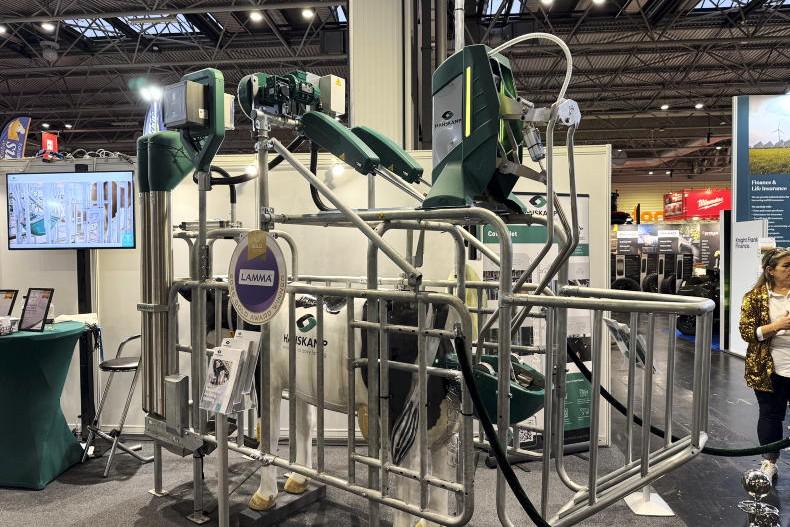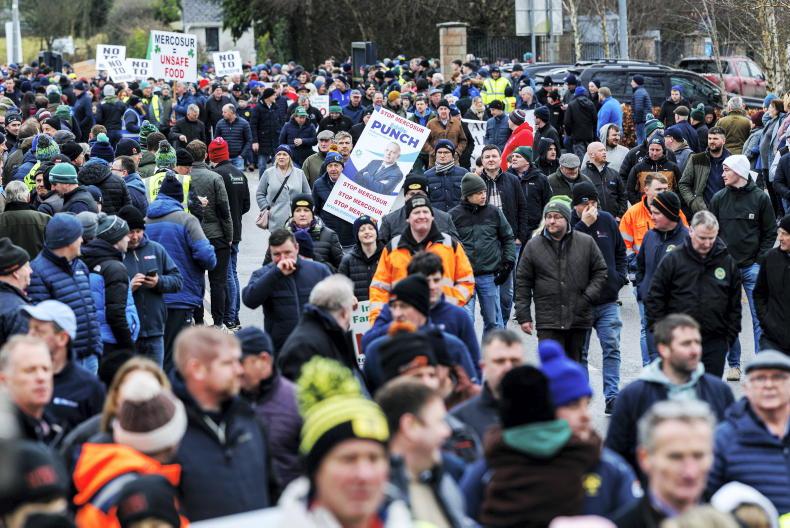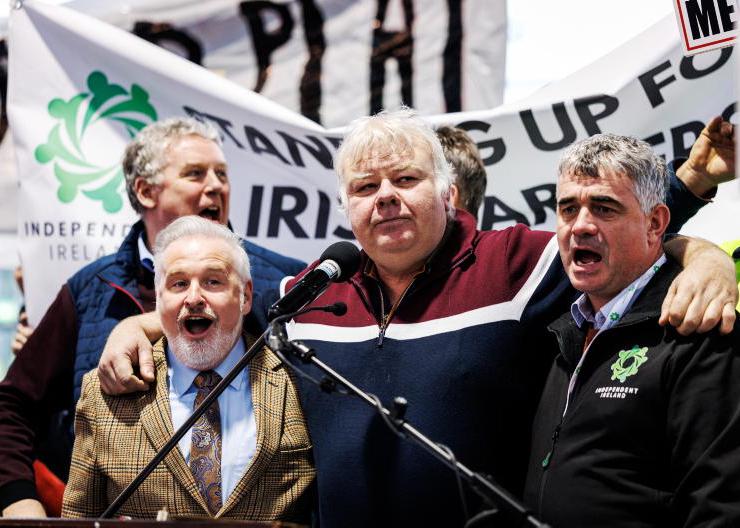Thousands of farmers have taken to the streets in protest in the Netherlands, as a result of government plans to make farmers cut back on production, relocate, and a potential ‘buyout’ of farmers to exit the sector.
Dutch tillage farmer Pieter Sikkema has called on Irish farmers to “wake up and help us” and warned that the strict environmental laws farmers in the Netherlands are facing will come into effect elsewhere in Europe.
Speaking to the Irish Farmers Journal from Stroe, the Netherlands, Sikkema said that the government has a target to cut nitrogen emissions by 50% by 2030 and warned Irish farmers that “the same thing will happen to you”.
The environmental laws enacted by the Dutch government follow a May 2019 court decision which declared that new permits for construction and other economic activities could be issued only when the government restored nature. Dutch dairy, pig and poultry farming is intensive with high stocking rates.
A spokesperson for Dutch Minister of Agriculture Henk Staghouwer described how with this court ruling in hand, Minister for Nature and Nitrogen Policy Christianne van der Wal-Zeggelink has “presented this goal” to hit the required targets.
He said the country has been zoned with specific nitrogen targets to be applied to each region, anywhere from a cut of 12% to 70%.
Sikkema described how the ongoing farmer protests in response to this zoning “started two weeks ago in central Holland”, where farmers will be “under the greatest attack”.
He said “farmers in that area will be blown away” and described how 40,000 farmers initially travelled to the region to support them in protest.
Equipped with a €25bn budget for the nitrogen targets, Minister Staghouwer’s spokesperson outlined four options now facing the agriculture sector.
Innovate: in areas with nitrogen reduction targets are closer to the 12%, farmers will be supported to innovate to become more sustainable.Extensify: farmers will be forced to produce less and sell locally. For large dairy farmers, government will take on their debt to enable them to “start over”. Relocate: farmers in areas with poor soil and water quality but who wish to continue farming will be forced to relocate elsewhere.Exit: described by the government spokesperson as the “very last option”, the complete “buyout” of farmers will support those without a successor to exit the sector.Protests against the plans continue with Sikkema stating: “Sometimes you have to make your point, put the tractors on the highway and tell them no.
“People see government is going the wrong way. Farmers won’t stop protesting if these steps are not scrapped.”
Thousands of farmers have taken to the streets in protest in the Netherlands, as a result of government plans to make farmers cut back on production, relocate, and a potential ‘buyout’ of farmers to exit the sector.
Dutch tillage farmer Pieter Sikkema has called on Irish farmers to “wake up and help us” and warned that the strict environmental laws farmers in the Netherlands are facing will come into effect elsewhere in Europe.
Speaking to the Irish Farmers Journal from Stroe, the Netherlands, Sikkema said that the government has a target to cut nitrogen emissions by 50% by 2030 and warned Irish farmers that “the same thing will happen to you”.
The environmental laws enacted by the Dutch government follow a May 2019 court decision which declared that new permits for construction and other economic activities could be issued only when the government restored nature. Dutch dairy, pig and poultry farming is intensive with high stocking rates.
A spokesperson for Dutch Minister of Agriculture Henk Staghouwer described how with this court ruling in hand, Minister for Nature and Nitrogen Policy Christianne van der Wal-Zeggelink has “presented this goal” to hit the required targets.
He said the country has been zoned with specific nitrogen targets to be applied to each region, anywhere from a cut of 12% to 70%.
Sikkema described how the ongoing farmer protests in response to this zoning “started two weeks ago in central Holland”, where farmers will be “under the greatest attack”.
He said “farmers in that area will be blown away” and described how 40,000 farmers initially travelled to the region to support them in protest.
Equipped with a €25bn budget for the nitrogen targets, Minister Staghouwer’s spokesperson outlined four options now facing the agriculture sector.
Innovate: in areas with nitrogen reduction targets are closer to the 12%, farmers will be supported to innovate to become more sustainable.Extensify: farmers will be forced to produce less and sell locally. For large dairy farmers, government will take on their debt to enable them to “start over”. Relocate: farmers in areas with poor soil and water quality but who wish to continue farming will be forced to relocate elsewhere.Exit: described by the government spokesperson as the “very last option”, the complete “buyout” of farmers will support those without a successor to exit the sector.Protests against the plans continue with Sikkema stating: “Sometimes you have to make your point, put the tractors on the highway and tell them no.
“People see government is going the wrong way. Farmers won’t stop protesting if these steps are not scrapped.”









SHARING OPTIONS